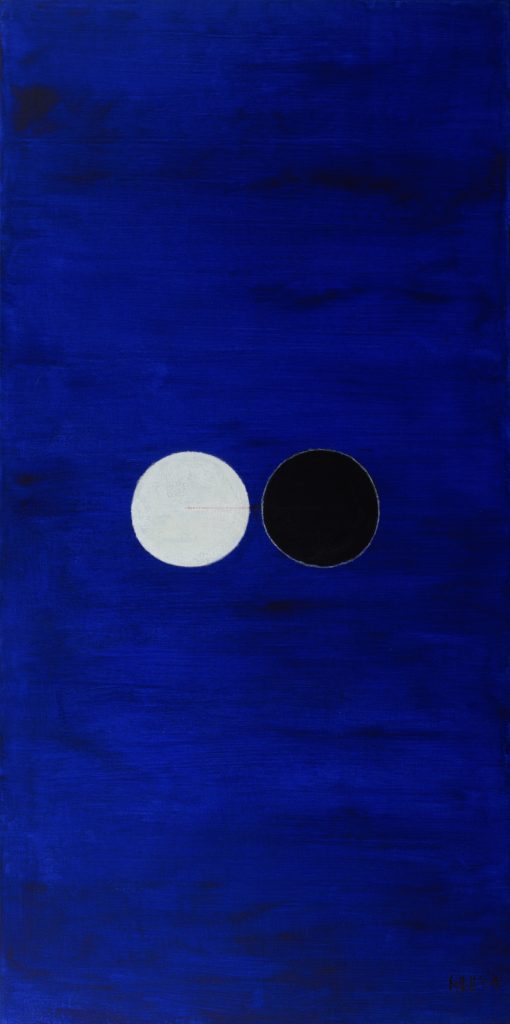“Toi, tu prends forme,
moi, je serais sans cesse:
tous deux à la poursuite de l’union.
Ma joie, ton corps
tes délices, ma presence.
Je te donne visage,
tu me rends l’infinie.
Nous deux, un seul corps
Un nouvel être est né
le toi-moi, le moi-toi.
Entre nous plus de difference
moi toi, toi Tuka.”
– Santo Tukaram
One of the many subjects Sayed Haider Raza pondered in his canvases was man’s relationship with the divine, borrowing inspiration from ancient teachings and philosophers in this quest. One of whom was Sant Tukaram, a 17th-century Indian poet and sant of the Bhakti Movement, best known for his devotional poetry (abhang). Tukaram made over 4,609 poems in his lifetime; the present work titled Toi-Moi, as written by Raza on the reverse of the canvas alludes to one of them.
The devotional poem speaks of man’s desire to be close and in union with the divine. Raza employs two bindus side by side to signify the meeting of these forces – being the sacred symbols of the cosmos unmanifested – the beginning of creation and the point of unity. The bindus not only pervades the work but also accentuates and explains it. The dominant color blue, on the other hand, portrays a peaceful and vast nothingness, like the primordial waters of the cosmic ocean. Similar to Tukaram’s poems – which made use of simple verses composed of vernacular language, the artist devoid the canvas of any unnecessary elements to attain simplicity and portray the purest form of nature.
The easel was not a place for convention for Raza but a space that encompasses a wide range of human experiences, resulting in a body of work that encapsulates an inner experience as much as a visual one. His mandalas and bindus stir as it delights the senses, weaving together the strands of art and spirituality and leading anyone who contemplates it in unity with the divine, like the abhang of Sant Tukaram.
Auction Catalogue – South Asian Art – ‘Modern and Contemporary’ – March 12 -16, 2020
